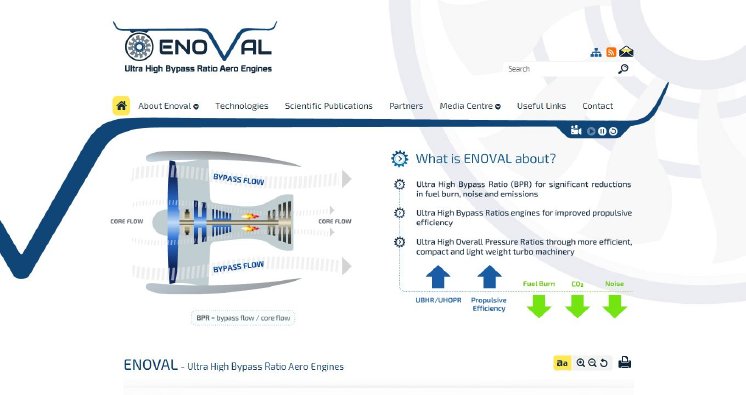In this project, 35 European partners are jointly developing new technologies for the low- pressure system for medium-sized, large and very large turbofan aero engines - geared and non-geared. The aim is to achieve reductions in CO2 emissions of up to five percent and in noise of up to 1.3 decibels. "One focus of our activities is on testing the new components," says ENOVAL coordinator Dr. Edgar Merkl of MTU Aero Engines. Plans are to conduct a total of 17 rig tests, in which the components are put through their paces in an engine environment.
Future engines for the next generation of short-, medium- and long-range commercial aircraft entering service from 2025 onwards will very likely employ ultra-high bypass ratios (12<BPR<20) and ultra-high overall pressure ratios (50<OPR<70), as investigated in the ENOVAL study engines. These engines are a key technology within the new Strategic Research and Innovation Agenda (SRIA) of the Advisory Council for Aviation Research and Innovation in Europe (ACARE).
About ENOVAL
ENOVAL, which is set up within the Seventh Framework Programme, will run for four years and has a gross budget of more than € 45 million, cofunded by the European Commission with € 26.5 million. Led by MTU Aero Engines, 35 partners from ten European countries are developing new low-pressure spool technologies for turbofans - geared and non-geared -, with bypass ratios of between 12:1 and 20:1 and overall pressure ratios of between 50:1 and 70:1. Major players from the European aero engine industry - including Avio Aero, GKN Aerospace, Industria de Turbo Propulsores, MTU, Rolls-Royce, Snecma, Techspace Aero and Turbomeca - cooperate in ENOVAL with SMEs from the aeronautics sector and academic and research organizations.


